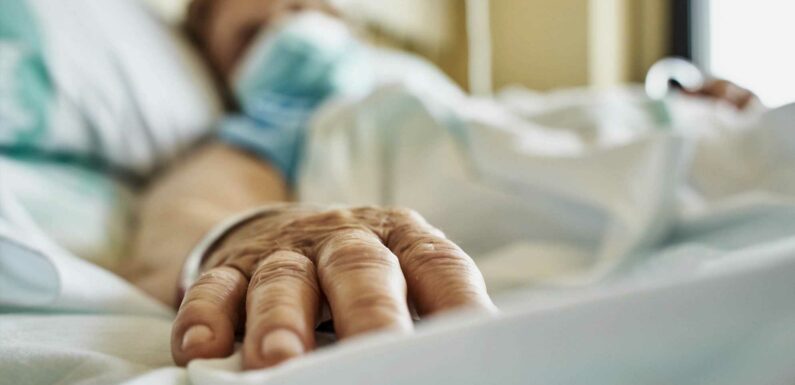
MILLIONS of women are at risk of a deadly cancer because they're missing vital signs, experts have warned.
New data shows that a shocking 41 per cent of women in the UK don't check their breasts on a regular basis.
Breast cancer is the most common form of the illness in women and cases are rising.
Experts at Breast Cancer Now have urged all women to get to know 'their normal' so they are able to spot any changes.
The figures also revealed that 42 per cent of women 'forget' to check their breasts, with 31 per cent not being in the habit of checking at all.
Around 18 per cent of women said they lacked confidence when it comes to checking themselves, with 15 per cent saying they didn't know how to.
Read more on breast cancer
I missed my mammogram – now I have breast cancer, says Sun’s Deidre Sanders
I was told burning pain was a clogged milk duct – now I’m fighting for my life
Manveet Basra, head of public health and wellbeing at Breast Cancer Now said research reveals the barriers women face.
"Fewer women regularly check their breasts now than a year ago.
“It’s so important that all women feel encouraged and empowered to attend breast screening appointments when invited, and to regularly check their breasts in between mammograms, as while most breast changes won’t be cancer, when they are, the sooner it is diagnosed, the better the chances of successful treatment."
She said that checking your mammary glands takes just a few minutes, and suggested that everyone should check them on a regular basis.
Most read in Health
My baby nearly died after nurse spotted ‘something strange’ in her scan picture
Shocking scans show cancer tumours ‘disappear after taking class B drugs’
Covid warning to parents as kids at risk of long-term side effect
Urgent warning to all parents amid fears of Victorian disease surge in kids
Manveet added: "It could be when you get dressed, when you’re showering or putting on moisturiser.
"It’s important to remember to check your whole breast area, your armpits and up to your collarbone (upper chest) for changes."
“There's no right way to check, as long as you’re doing it regularly. It’s as simple as TLC: Touch, Look, Check.”
The survey, commissioned by YouGov, found that a quarter of those who do check their breasts for possible signs and symptoms of cancer, don’t feel confident that they would notice a new or unusual change in their breasts.
The 7 signs of breast cancer you need to know
If you notice any of the below signs, you should book in to see your GP
- Lump or swelling in the breast, upper chest or armpit
- Change to the skin such as puckering or dimpling
- Change in the colour of the breast – it might look red or inflamed
- A change in the nipple – does it look inverted?
- Rash or crusting around the nipple
- Unusual discharge from the nipper
- Changes in size or shape of the breast
Around two thirds of breast cancers are found by women noticing new or unusual changes and getting them checked out by their GP.
The sooner it's detected the greater chance there is that treatment will be successful.
There are around 11,500 breast cancer deaths in the UK each year, equating to 32 every day.
That's why you should learn how to check your boobs, and here's how…
Experts at Breast Cancer Now said you don't need any special training to check yourself out.
Touch: touch your breasts, can you feel anything new or unusual? Any lumps or bumps or swelling that weren't there last time. Is there puckering or dimpling?
Look: do they look different? Any marks or changes in your nipple , shape, size or colour? Is the breast red or inflamed? Are the nipples crusting or is there a rash? Is there any liquid?
Read More on The Sun
I was embarrassed when I found a lump down there – now I’m fighting for my life
I spent £115 on an IKEA haul, the items totally transformed my living room
Check: if you think something isn't right, get checked out with your GP.
If in doubt, always see your GP. In an emergency always call 999.
Source: Read Full Article








